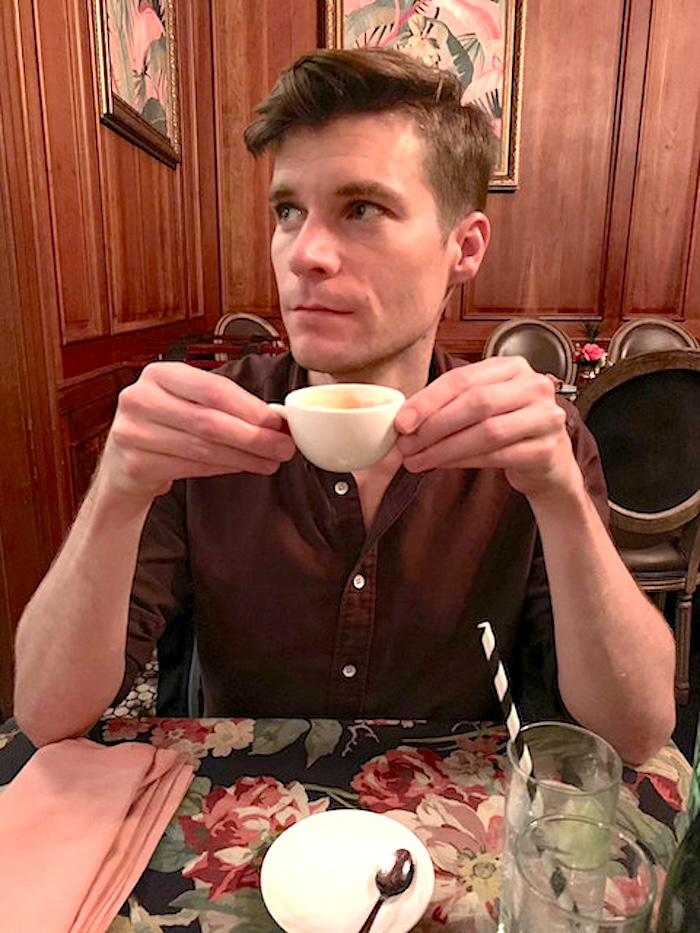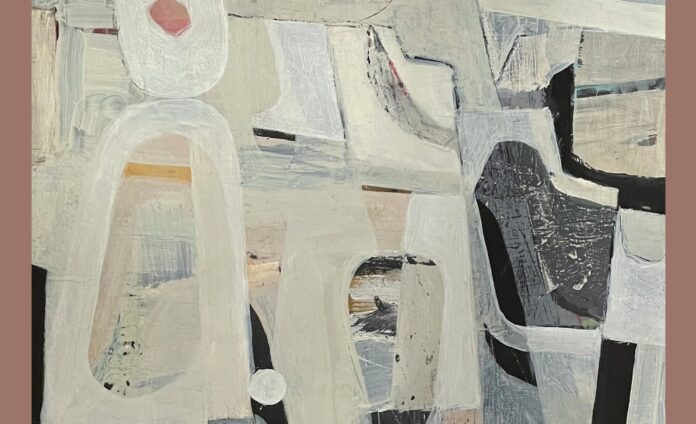>>We need you! Become a 48hills member today so we can continue our incredible local news + culture coverage. Just $20 a month helps sustain us. Join us here.
If the music on James Devane’s Searching sounds like it was thrown together by natural forces beyond the artist’s control, that’s because, in a sense, it was.
Devane, a former member of the San Francisco drone duo En who makes buffeting ambient techno as a solo artist, assembled the 17 tracks on his third solo release with a custom computer program that searches through a vast archive of improvisations and jams and pairs snippets of music at random, with no regard for tempo or key. The title of the album is a sly double entendre, referring both to the music’s contemplative tone and the process of its creation; a “search button and a save button” where the primary tools of its creation.
“It totally randomizes anything without any concern,” says Devane. “A lot of the output was like pretty hard to listen to, but I found all these ones that I liked. I would make a long playlist of all of the results and then just walk around in the Mission listening to it.”
Devane lives a nomadic lifestyle, driving around the country with his wife, staying in meditation retreats and car-camping; Devane is speaking to me from Wyoming. He works remotely as a software engineer, hence his ability to write programs like the one he used to make Searching.
Born in New York City and raised in the West Chester, PA area, Devane studied jazz at the University of North Florida, then moved to San Francisco in 2006 simply because “he liked it a lot” and had heard it had an interesting experimental music scene. He didn’t have a career lined up, and he stumbled into the city’s burgeoning tech boom by accident.
“I got this crazy job at a salsa dancing company,” he says. “We had all these different salsa websites, and part of my job was to update them, so I learned how to update those there. And then I just got lucky and started working at tech companies.”
His solo debut James Devane came out in 2008 on the TRANS>PARENT RADIATION label, but he had a fateful encounter when he send the demo to label Root Strata’s owner Maxwell August Croy, who also performs ambient music and recently attracted critical acclaim for his collaborations with harpist Mary Lattimore. Devane and Croy started the drone duo En, which was Devane’s primary musical concern for the next decade; when Croy moved to Stockholm shortly before COVID, Devane returned to his solo project.
“On the first record I was really into guitar, what I was really excited about at the time was all the drone stuff,” he says. Yet memories stirred in his mind of the beat-driven ambient music he listened to in college, like Kompakt’s Pop Ambient compilation series and the “clicks & cuts” music on the Mille Plateaux label. “I always had in the back of my mind that I wanted to make more Pop Ambient-style music,” he says.

2022’s Beauty is Useless was his first solo album in 14 years, and though the influence of Kompakt’s rosy brand of ambient techno was obvious in its gauzy textures and relentless kick drums, it felt thrillingly rough and experimental, with chords booming and echoing like thunderclaps rather than simply perfuming the background. The impression of listening to this music is a bit like walking uphill through dense fog, an experience with which every San Franciscan is accustomed.
Searching, released on Croy’s new label Umeboshi, is even stranger. Devane’s tracks move with a rugged, animalistic grace, and they’re divided by short interludes that sound like a Game Boy on the fritz.
“The program that I made that randomizes everything, when I first made it, it had a bug in it,” says Devane. “Every time I hit shuffle it would make those noises. I was mixing them in our apartment, and my mother-in-law thought I was playing video games or something because those noises are so weird.”
Devane has not given his custom program a name and has no plans to distribute it for anything other than his own personal use. He’s keen to emphasize that it’s not AI but a “very dumb, crude program,” and while it undoubtedly saved him hours of digging through freeform jams, he says the most labor-intensive part of creating Searching was assembling the randomized loops into a listenable record after the program had done its work.
“With AI coming in, music is just sounding more and more perfect,” says Devane. “And so I liked how this one sounded rough and weird. I feel like in terms of humans making music, we have to make music that’s weirder going forward just to get out of the realm of whatever’s coming in the future.”
Pick up Searching here.








